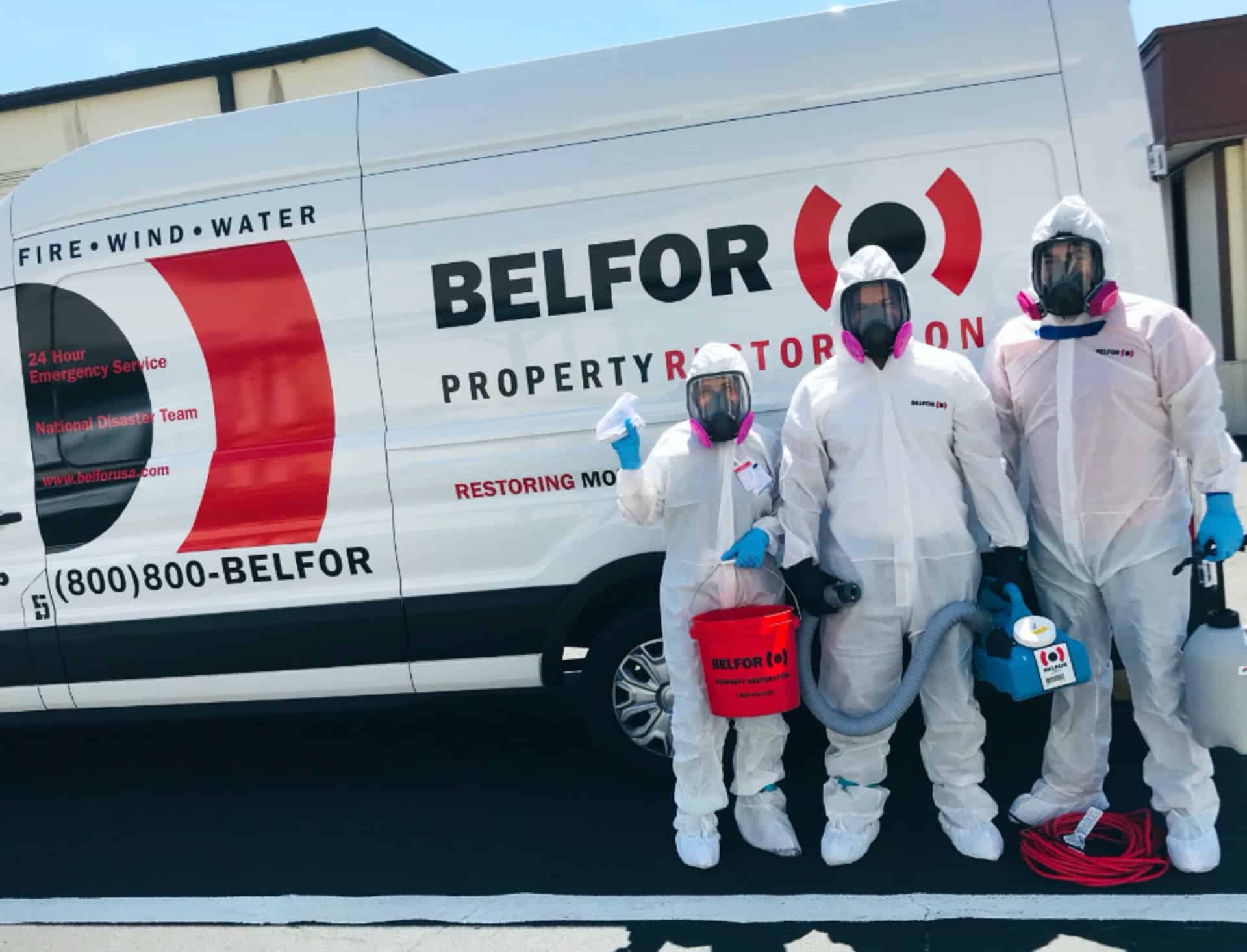How Leaders of Essential Businesses Can Spread Positivity During a Crisis

Please let me be clear — before the leaders of any essential businesses can do our jobs, we first need to thank our heroic first responders and medical personnel for their service and commitment to our communities.
As COVID-19 sweeps across the globe, we’ve seen additional people step up in heroic ways: supermarket employees, gas station clerks, truckers, restaurant employees, and service company employees all have made a “conscious decision” to take a risk and serve others. These passionate and compassionate individuals routinely put their health and well-being at risk to ensure the safety and security of complete strangers!
As CEO of the world’s largest property restoration and disaster recovery company — with 9,200 professionals working 24/7/365 — I am intimately familiar with the process of bringing comfort to others. Whether we’re restoring homes, businesses, or cruise ships (hundreds of our team members recently returned home after spending months in Japan cleaning the Diamond Princess cruise ship after its COVID-19 outbreak) after a hurricane, tornado, water, wind, or fire damage, we work to restore the damaged property as well as the human spirit of everyone impacted.
Executives, managers, and leaders of essential businesses must recognize that a lot of employees are experiencing increased physical and emotional stress. So many people are challenged with difficult situations they’ve never considered before, and it’s incumbent upon managers to stop managing and start leading! It is every leader’s job to become a CEO, which now stands for Cheerleader, Enthusiast, and Optimist-in-Chief. We all must serve as the CEOs of our worlds and businesses moving forward.
Here’s how you can stay positive and lead your teams with passion and positivity during a crisis:
Prevent panic and chaos. No matter what challenges and fears exist, talk confidently and comfortably while leading others through a disaster. Put together your action plan with the understanding that it may change at a moment’s notice. Communicate your plan with confidence, but acknowledge that things may change — and that changes will be made for the good of all that you oversee.
Remember that your colleagues will feel a wide range of emotions throughout this journey. Be sure to address as many concerns and fears as possible on a personal basis where and when you can. Communication is essential when done appropriately, but you must also recognize that over-communicating can potentially dilute your positive messaging.
Be present and available. During a disaster, a team will look to its leaders for inspiration, comfort, and direction. This is not a time for managers and executives; this is a time for leadership. It’s a time to encourage conversation, openness, and transparency.
At the same time, don’t forget that you are the leader. Make yourself available to your colleagues, and go above and beyond to address questions and concerns throughout any crisis. Additionally, share your concerns in a confident yet humbling way that allows your human side to show.
Remember that any touchpoint — an email, a phone call, or a handwritten note — can help boost a colleague’s morale by showing that you appreciate him or her. Wear a smile, preach positivity, and express your gratitude. In my opinion, “nice” is the greatest four-letter word in the English language.
During a crisis, especially, companywide kindness will improve your team’s health, productivity, and overall outlook. Don’t underestimate the power of real relationships, and pick up the phone to connect! Especially during challenging times, hearing someone’s voice over the phone can be comforting.
Share triumphs and tribulations. In your communications, share stories that display positivity and the human side of your company’s work. Remind your colleagues that their jobs are incredibly meaningful, and point out examples of how they have helped others find light during dark times.
Our company recently received a very emotional thank-you letter from a homeowner who was affected by a random act of kindness. She thanked us for recovering her lost wedding ring during our cleanup after a hurricane. As I shared this with the team that helped, they were truly uplifted and rallied to once again make a difference in the lives of others.
Meanwhile, don’t shy away from stories of hardship. It’s important for your team to see and feel your human side. They should know in their hearts that you share their struggles. Here again, there is a vast difference between management and leadership.
Leaders within companies play a pivotal role in times of crisis. As my colleagues have risen to become CEOs (Cheerleaders, Enthusiasts, and Optimists-in-Chief) of their own teams, going out and accomplishing things they never thought were possible, I’m able to take a step back and say this is living proof that not all heroes wear capes!
Written by Sheldon Yellen. Have you read?
# Best CEOs In The World: Most Influential Chief Executives
# These are the World’s most traffic-congested cities, 2020
# Ranking of the World’s most (and least) stressed cities with the most burned-out employees, 2020
# Ranking of the World’s most economically influential cities, 2020
Bring the best of the CEOWORLD magazine's global journalism to audiences in the United States and around the world. - Add CEOWORLD magazine to your Google News feed.
Follow CEOWORLD magazine headlines on: Google News, LinkedIn, Twitter, and Facebook.
Copyright 2025 The CEOWORLD magazine. All rights reserved. This material (and any extract from it) must not be copied, redistributed or placed on any website, without CEOWORLD magazine' prior written consent. For media queries, please contact: info@ceoworld.biz









